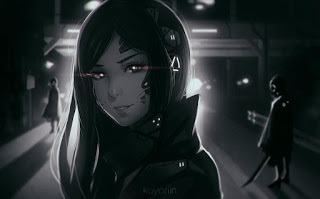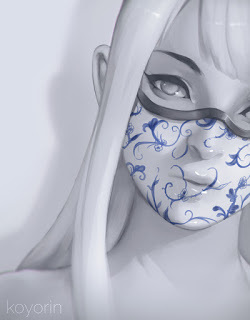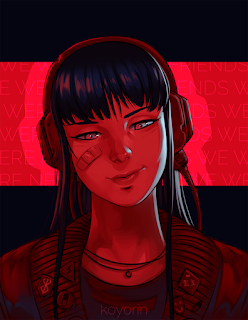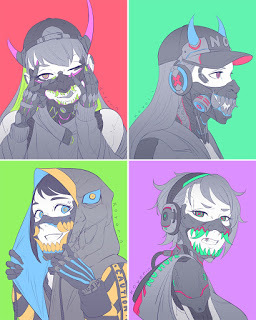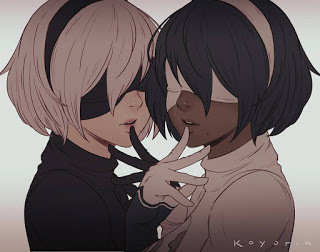Chris Morton's Blog, page 10
March 16, 2021
Another tale from the Further Adventures of Cara Delaggwei by Patrick Gabriel Doyle
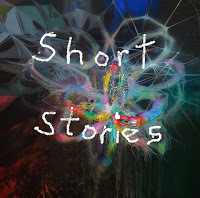
Another tale from the Further Adventures of Cara Delaggwei
by Patrick Gabriel Doyle
Communing was always tricky, even at the best of times and after the immense time-scales spent in the denseness of Urth, Cara Delaggwei was finding it very difficult to Open.
Even now, having left Urth and here, in the vastness of space, there was still only silence.
Was there anyone left?
She knew there had to be. But certainly not on Urth.
She had searched and scoured, eventually closing-down and going into a long period of just waiting …
Remembering …
She had gotten to know Urth and in a way it had gotten to know her.
From The Disruption until now, aeons of Urth time had passed. She had spent most of that time in stasis, melding with the planet in much the same way as they had done on Atlantis.
Urth felt gentle but strong; so full of life…
The Disruption of Atlantis had, however, wreaked havoc. Fall-out blasted not only Urth, but the whole System, altering conditions on many of the other planets. The Great Orange Giant now had a blemish: a storm that rages. No longer, the meditative hang-out where so many Atlantean dreams had been born and so many Atlanteans conceived!
Urth was smaller, younger, the destruction, harrowing. Cara Delaggwei had been monitoring and recording when The Disruption occurred. It struck her to the depths of her Atlantean soul. The silence in her mind had been immediate and overwhelming.
What she couldn't understand was the completeness of thesilence. Where were the other Atlanteans who, like her, had been on Urth at that time?
When she'd returned to the Main Urth Compound a couple of days later it lay abandoned and silent.
When she saw Atlantis disappear from the sky she knew she had but little time to prepare before the effects shook Urth. Shockwaves would be severe enough – what else would happen she wasn't entirely sure. But she could do nothing except, perhaps, save herself.
Deep underground – yes, that was the place … unless, of course, the whole planet went BOOM!
She found a zaucer at Main Compound, zippy enough to fly to the mountains in double-quick time; nippy enough to negotiate the cave-tunnels.
She razed the whole Main Compound complex as best as she could with only the zaucer’s razerbeam: Nothing from Atlantis could remain on Urth.
She must save nothing from Urth. Preserve nothing. History would record a destruction event and it was not within her essential nature to alter the course of that history.
However, she couldn't resist a few ‘artefacts’, as she thought them, carefully chosen to take deep underground.
When the first shockwaves hit, she felt Urth shudder. Deep pangs of responsibility wounded her heart.
“I'm sorry … We are sorry” … she whispered … But why? She didn't know …
When pieces of Atlantis pummelled Urth she was deep in stasis. She did not see the planet burning – she did not see the sky churning. She did not see evolution grasping life from the jaws of extinction.
Aeons passed …
One day, she peeked out. Thick ice had covered the opening of the cave-tunnel. A blast of razerbeam melted it and now the zaucer hovered in a freezing sky.
Ice covered Urth. A bleak, moaning wind buffeted the zaucer.
Cara shivered involuntarily as she wrestled with the stabilizers.
It is not yet time – she thought.
Then, when the homuds came, she began her work.
She knew Urth like no other … This planet deserves life!
She would provide hints: potentialities to become embodied in homud evolution. She could not interfere directly: they must grow independently to survive.
The tools of serendipitous evolution would be there for discovering: Communication, Imagination, Invention, Discernment.
Sometimes she was glimpsed. It could not be avoided …
The homuds spread and as they spread, so also did tales of The Great Mother who lived in the centre of Urth and who was Urth and who could appear almost as homud, but majestic and shining in her Silver disc.
She watched them evolve …
A time came when, with much thought-over integrity, she presented herself exclusively to a male homud. He provided his sperm willingly (very willingly!!) and she was with child …
* * * * *
-CRASH-
… she was back in the present moment, zinging through space in the trusty zaucer. Zaucers were made for express, inter-planetary travel and only possessed a rudimentary quantum drive; really just a souped-up particle propulsion unit. Luxury it was not!
She ran a quick external scan of the craft and looked 360° around the transparent dome that encased her, wondering if something had struck the craft. She knew, however, that even the smallest piece of space dust would have been diverted by the phase-shield.
Then she noticed … voices … a space … in her head. She had Openedand that space was vast. There were many voices, conversing, chattering … un-alarmed … WhOOOOLLLKKK … She felt herself sucked inwards … de-enveloping … un-enfolding … convolving … blip.
* * * * *
KHAAAAZZAAAAAMMmmm …
She was still in the zaucer, but somehow hovering above the atmosphere of her homeworld, Atlantis. Tele-networks in her mind were strong. Buzzing. Active. It seemed a normal day in Atlantis.
How, how, how? – She thought.
One voice caught her attention. Tuning in, she accepted the communication invite …
‘Cara! Yey! Welcome home! How was Urth – are those saurs behaving themselves?’
“Unito!Yey! Eh … I'm fine, Urth was, um, interesting” – she pauses –
‘Are you alright, Cara? You seem a little distant … are you coming in?’
“Yes, apologies, Unito. Just tired. Keep a space in the bay for a base-zaucer.”
‘You came from Urth in a zaucer? No wonder you're tired!’
“Yes, I'll explain later … Eh, Unito, how have things been here?”
‘Good. We are blessed with existence, as always.’
“Anything of … erm … note … happened since I've been gone?”
‘Not that I know of … you've only been gone 14 days. What are you expecting?’
“No … nothing … just wondering …”
‘Mmm … are you sure you are okay Cara? Maybe you should have a net-scan, especially if you've been running around Urth without a suit. I mean, it's a lovely place but … you never know …’
“Thanks Unito. I may just do that. I think I went out of telepath range for a short while on Urth … but, then … for me … communing was always tricky.”
Baby Rabbit
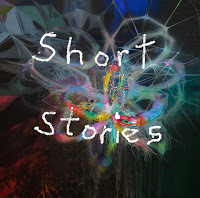
Baby Rabbit
by Chris Morton
Can’t say where it came from. Mummy didn’t buy it, neither did Grandma or Granddad. Had nothing to do with me. It just appeared, this tiny little baby rabbit toy. Soft and grubby. A dirty white in colour, with shiny black eyes, no whiskers, small legs and arms; one ear shorter than the other.
Its neck had come apart at the seam and Mei Mei liked to put her finger through the stitching.
She’d had a few favourite toys. An owl, a monkey, but this one was special because it was the first toy she talked to.
I’d catch her sometimes, having these little conversations, and she’d do the baby rabbit voice as it chatted to her back. Whenever she saw me looking, she’d stop, feel shy, and it would have been easy to make fun, to push her, to say, “Ah, you’re talking to your rabbit?” But I didn’t. Instead I’d look away, pretend I hadn’t seen. Or I’d offer her a knowing smile and let them get on with it, not judge or interfere.
“Ahhh, I want some ice-cream,” the baby rabbit would say.
“Okay,” Mei Mei would reply.
She’s go and get some pretend ice cream. Tear up bits of paper and later when we got Play-Doh, she’d use that.
“Pizza!”
“Not too much,” she’d tell the rabbit.
“Ahhh, I want more,” it would squeak.
“Okay, just a bit more.”
Baby Rabbit started sleeping with her before long. “Baby Rabbit!” she’d say.
“Oh, yes.” And I’d find it under the sofa, in the kitchen, in a box in the upstairs spare room. “What was she doing there?”
“Sleeping.”
Mei Mei loved Baby Rabbit and Baby Rabbit loved Mei Mei. She was her mummy.
“Ahhh, Daddy, Daddy.”
Mei Mei had begun to slide Baby Rabbit into my collar when I was putting her to bed. “Babby Rabbit wants Daddy.”
“She wants to sleep with me?”
“Yes.”
She’d rest under my collar, head protruding out, but later, when Mei Mei was asleep, I’d slide the rabbit back under her arm.
“Baby Rabbit’s crying.”
“Oh, what’s wrong?”
“Baby Rabbit’s sick.”
I told Mei Mei stories before going to sleep. I’d make them up, stories about big bad wolves and cakes. Baby Rabbit had her own one.
“One day Baby Rabbit was in the sweet shop. There were so many different kinds of sweets; green ones, turquoise ones, pink ones, chocolate ones …”
Baby Rabbit bought a big bag of sweets and on the way home thought she’d try a few. Just a strawberry one, just an orange one; another chocolate one.
Coming through the front door, Baby Rabbit was feeling sick. She’d eaten all the sweets. Mei Mei gave her a cuddle and told her to be careful next time, to not each too much at once. She gave her some water and put her to bed. Baby Rabbit was crying but in the morning she felt better.
In my job I started late, so in the mornings we’d go out for walks. To the forest or to the park or playground.
On the last day we saw her, we were by the front door, about to go out when I said, “Oh, wait, you’ve forgotten your baby rabbit.”
Took us a while to find her, but there she was, hidden in a pile of clothes.
“Baby Rabbit!”
That morning I was tired so we didn’t go far. I needed something from the chemists, Mummy wanted some cold noodles from the convenience store and while there we bought some jelly.
“Jelly!”
We rode on the electric car outside. Mei Mei bobbing up and down. A passer by saw Baby Rabbit resting on the pavement. Picked her up and handed her to Mei Mei.
When we got home, Mei Mei was holding the jelly and I had the noodles and the bag from the chemist’s.
We ate lunch, then Mei Mei went upstairs with Mummy for a nap. She was crying about something and at first I thought she was looking for the rabbit but when I went up there it was all about her favourite pyjama top which was in the wash.
I went back downstairs and almost looked for the baby rabbit then. But I was already running late for work.
It was only when I got home and saw Mei Mei that I twigged that Baby Rabbit didn’t seem to be around. No, not straight away. It was later. Not quite bed-time but I had a feeling. I searched every room in the house. I ran back outside in the dark, retraced our steps from that morning. The shops were shut, all except the convenience store.
“You haven’t seen a little baby rabbit toy? Someone handed it in?”
Sympathetic looks from the cashiers and manager. They knew Mei Mei by sight. Probably knew the rabbit too. They could see the desperation in my face. That night I couldn’t sleep.
In the early morning I rushed to the chemist’s.
“A little baby rabbit toy?”
“So sorry.”
I walked up and down the street. Inside another shop.
“Someone must have taken it.”
Back home again, I turned the house upside down. Mei Mei was out with her mummy. I had time. Time to retrace our steps again. I went to another nearby shop that sold soft toys with the idea of buying Mei Mei a new one. But looking at them all … they just seemed so lifeless.
That evening I sat her down.
“There’s something I want to talk to you about.”
Mei Mei looked at me, came to sit on my lap.
“Baby Rabbit is not here. She’s gone. But she’s okay. Another girl found her. She lives in that girl’s house now. Do you understand?”
“Yes,” said Mei Mei. She meant it. She’d taken in my words.
“Why did the other girl take Baby Rabbit?”
“Because she wanted to help her. She saw her in the street and Baby Rabbit was crying. She gave her a cuddle and took her home and now she’s looking after her.”
“Will Baby Rabbit come back?”
“No, she lives in that girl’s house now.”
“I don’t like that girl.”
“No, no, she’s a good girl. She wanted to help Baby Rabbit. Baby Rabbit …” I paused, how to put this? Baby Rabbit’s found someone else? Moved on? “Baby Rabbit is happy, she’s okay.”
“But it’s not that girl’s Baby Rabbit. It’s Mei Mei’s Baby Rabbit.”
“I know, I know. But Baby Rabbit is happy. She’s okay. She’s not crying.”
“Okay.”
“I’m sorry,” I said.
“Okay.”
We held hands. And it was hard to tell who was comforting who.
March 11, 2021
Code Red
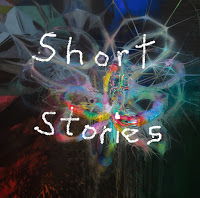
Code Red
by Chris Morton
McCain took a can of freestone peach halves from the bottom drawer of the desk; from deeper inside he extracted an opener and for nothing less than three minutes, wrestled with the can. He had large hands, and like his arms they were covered in dense black hair; his forehead furrowed beneath thick black eyebrows, his spectacles slid forward and a globe of spit formed on the right side of his rather fat red lips.
“Damned contraption …”
On the left of the desk’s surface were six blue pencils, neatly sharpened and laying on top of a shallow pile of light brown folders. The center of the desk was smooth, shiny – a shadow of the bumping can stretched and wavered – while on the right was a typewriter, a heavily loaded ashtray and a dark green telephone attached to a set of buzzers.
From outside, busy car horns filtered through a half-opened window. Commuters and evening vendors; the muffled hustle of a city on which the sun had now set.
“Goddammit!”
McCain hit at one of the buzzers.
“Ginnie, could you get in here?”
A tall woman entered the room. Gangly, and though not unattractive, she was nowhere near as bewitching as many of these young girls could be.
“The can?”
McCain murmured in response and the woman came over to his desk, bending down across him.
“Can’t seem to –”
“Yes, they can be a pain,” she said. “The trick is to hold it here.”
The can opened.
“There.”
The woman stepped back. Beneath her a large tartan carpet covered most of the tiled floor – to their left was a whiskey cabinet with ice and server.
“Shall I …?”
“Much obliged.”
The woman, Ginnie strode over to the said cabinet.
“You’ll have one?” McCain asked.
“Not for me, thank you all the same.” She turned, a crystal tumbler having magically appeared in her clasp. A good measure of murky spirit – behind her a portrait of Eisenhower hung with a strained smile to match McCain’s own.
“You should get home.”
“I will, I will. You know how it is. Long day.”
Ginnie placed the tumbler beside the can of peaches. “Shall I get you a spoon?”
“Of course. I mean, yes, of course. Can’t seem to think …”
“And the evening paper?”
“We’ve a copy here?”
“I’ll check.”
Ginnie left the room, returning with a spoon and information that the paper would arrive shortly from downstairs. She hovered for a moment, watching McCain’s glass.
“Would you like another?”
“Not yet.” He waved away her offer; loosening his tie, he leaned back in his chair. “Just the paper, and get yourself off. Catch yourself a hot date.”
“Thank you, Mr. McCain. Shall I organize a cab?”
“No need, no need.” He waved her away again, though not rudely: there seemed in fact, by all appearances to be an understanding between them. Almost as if they were going through a routine.
“Right you are.”
McCain was left alone.
“Long day indeed,” he mumbled.
He stood and quickly made over to the cabinet; poured himself another slug, then returning to his seat, made sure he’d drunk just enough to make it look as if he hadn’t got a second. When Ginnie opened the door again, this time bringing in the paper, his cheeks were reasonably flushed.
“I’ll get off then.”
“Yes, yes, good-night.”
He still hadn’t touched the peaches – something which Ginnie noticed but failed to mention as she gave him a nod and left the room once more.
McCain opened the paper. Just one of those things. Without glancing at the first page, he opened it randomly. What exactly he’d been hoping to find, he couldn’t have said – but almost as if he’d shifted into a new light; awake, finally, from the morbid clout of nothing, his world began to spin.
“My God.”
He reached for the buzzer.
“Ginnie, get in here.”
His secretary returned, this time wearing a coat of purple fur over what had been a flat green dress.
“Yes?”
“Get me Barrel on the line.”
“Barrel…?”
“Yes, Barrel. And make it snappy!”
“Right you are.”
Ginnie turned back. “Is this important?”
“You’re goddamn right this is …” McCain paused. “Just get me through to Barrel and be off. I’ll handle this.”
Their eyes met.
“I’ve got this,” McCain repeated. “You go see to that date.” McCain ran four fingers through his hair. “Probably nothing,” he murmured, this time more lightly. “Need to check something …”
McCain made to start at his peaches, though once Ginnie had left the room, he focused on the paper, on what he’d seen; his hands were shaking.
American ‘pioneers’ fail again to reach the moon. Fourth attempt this year ends in premature engine shutdown. Simple bad luck or suspicions of corruption justified? See tomorrow’s paper for our exclusive interview with NASA representative, A. T. McCain …
The words appeared in small print between a financial article on the rising price of inner city estate and an advert for bleaching detergent.
A light on the switchboard flashed.
McCain picked up the phone whilst at the same time removing his spectacles.
“Barrel?”
“McCain.” (The voice was firm and sharp.)
“You seen the evening edition?” said McCain with equal authority in his tone.
“Not yet,” came the answer. “Anything I should be worried about?”
“You could say that.”
McCain placed the receiver back down, cutting off the call. He stood and went over to the cabinet, mixing up another whiskey; once seated again, he began on his peaches.
The phone rang.
“Yes?”
“McCain,” said the voice. “We may have a problem.”
“You’re goddamn right we do,” McCain mumbled, chewing and swallowing.
There was a pause. Then: “You’d like to find out who did this?”
“I wanna strangle them,” replied McCain.
“You serious?”
“Of course I am.”
Another pause.
“You mean an assassination, a code red?”
“That’s your call, Barrel.”
“And you’re … look, McCain, I have to ask. You sure you didn’t –”
“What do you take me for? Damn it, it’s as much my job as anyone’s to see the true nature of the Pioneer missions doesn’t get out … why photographing the moon at this present time …” His voice suddenly rose. “You think I did an interview? For Pete’s sake, this isn’t even an article. It’s bait, I tell you. A frame.”
“Okay, okay,” came the reply. “But you know a lot of people will be –”
“Worried, yeah, I know.” McCain coughed. “Which is exactly why I need it dealt with and fast. Whoever set this up, I want them found and dealt with before …”
“Before your position is reviewed?”
McCain breathed heavily. “Reviewed,” he repeated with a fair amount of irony. “My God, Barrel, how much time do you think I have?”
There was silence as the magnitude of that question began to form.
“McCain, I’ll vouch for you.”
“Like that’ll do any good.”
“McCain …”
“Yeah.”
“The code red, I’ll put it through. But there’ll also be –”
“Sure.” McCain replaced the receiver, his eyes looking tired. Pushing the peaches to one side, he reached for the whiskey, then leaned back in his chair.
The fan in the ceiling whirled slowly and it was all of five minutes until the phone rang again.
“Yes?”
“I understand you’d like some information.”
“Yes, yes, I … who is this?”
“Name’s not important,” said the rough voice. “My assistance was requested. You are Allen McCain. I hear you’d like to track down a reporter …”
“Yes.” McCain stood, still holding the receiver. He picked up the phone and went over to the window. Opening a slat in the blind with two fingers, he took in the dark street below. A phone booth opposite the building with a hunched figure inside. Wide hat and long coat.
“Just need you to confirm.”
The figure turned around fully, looking up at the window – though there was no way he could have seen him.
“What information do you have?”
“That an article has appeared in the newspaper on your desk, and you’d like to take care of the source.”
“No, not an article.” McCain squinted. “It was just …”
“We can find who wrote it.”
“You can?” McCain stammered. “How fast?”
“We work quickly.”
“How?” McCain’s face brightened somewhat.
“We have contacts,” said the voice. “It’ll be easy enough to trace.”
“Well, whoever it is, they need to be dealt with.”
“It’s our business.” The man in the phone booth turned away. “You’ll hear from one of us shortly.”
“Right … right you are.” There was a flash of lightning and McCain jumped back. Three seconds later the distant sound of rumbling, then the pitter-patter of rain hitting hard at the window.
McCain watched the figure stride purposefully along to the next block, tightening his coat, one hand up to his hat.
When the figure disappeared, McCain began to laugh – deep and from the belly; low, rumbling with a hint of mania.
All of a sudden, the phone rang – McCain almost dropped it, jumping for the second time in the same minute.
“Yes?”
“Allen …”
Still by the window, McCain swayed ever so slightly. Moving slowly back to the chair, he managed to sit down.
He placed the phone on the desk.
“Allen, are you there?”
“Sure.”
“You all right?” It was a woman’s voice.
“Fine, Joan. How are things?”
McCain, switching the receiver from right hand to left, reached into his breast pocket with his one free hand. He pulled out a packet of Lucky Strikes, expertly managing to extract a cigarette and light it in one swift motion (that also involved taking the zippo from his right waist pocket).
“Allen, you wouldn’t believe it.”
“Wouldn’t I?” McCain let out a puff of smoke.
“The day I’ve had. I don’t know whereto start.”
“Sure …”
“First the car, then the neighbor’s dog; that godawful Rottweiler, what do they call that thing? Some ridiculous –”
“No idea.” McCain coughed.
“Pitcher, that’s it. If you ask me …”
“Ask you what?”
“… stupid name, that’s all.”
“Right.”
“Yes, okay, Allen, I’m sure you don’t want to hear about all mytroubles.”
“No, no, go on,” McCain replied, drawing on his cigarette, eyes distant. “What did, what did Pitcherdo this time?”
“You think I’m calling you up to chat about the neighbor’s dog?”
McCain moved in his seat, stubbing out the cigarette. “No idea,” he drawled.
“Allen.”
“Yep?”
“It’s Rosie. She got into a fight again.”
“Again?”
“With a boy.”
“A boy, eh?”
“And you can stop smirking,” the voice said, guessing the expression on McCain’s face. “It’s the third time this year and they want … they’ve requested that we go there. Tomorrow.”
“Tomorrow.”
“The both of us.”
McCain shifted. “Can’t Tom –”
“No, Allen. It’s her father they want to see. Things are awkward enough already. For her. I’ve no wish to go parading –”
“No, quite. I understand.” McCain was looking at the paper, a right forefinger gently resting against his typed name. “What time?”
“Eight o’clock.”
“In the morning?”
“Yes, in the morning. You can’t get here for –”
“No, no, I’ll make it.”
The voice huffed. “And you’re sure you’re all right?”
“Never better.”
“… Well, I’ll be off then. You want to speak to Rosie?”
“She not sleeping?” McCain asked.
“I doubt it. Reads till the sun comes up. Thinks I don’t know …”
Behind, from the window, there was another flash of lightning.
“It raining there?”
“Like hellfire.”
“Tom with you?”
“Allen, you know he is.”
“Of course.” McCain huffed. “And you’re exaggerating, right?”
“Exagg–?”
“About Rosie.”
“The fight?”
“Till the sun comes up.”
“Yes, I mean … you want to speak to her or not?”
“No, no. I’ll see her tomorrow. Eight o’clock, you say.”
“Allen, you sound tired.”
“Fine, I told you.”
“You need to get home, Allen. Your health. When was the last time you had a check-up?”
“On my way. See you in the morning, Joan.”
McCain stood from the chair, then hesitated before putting the receiver down. He lifted it again to his ear but the line was dead – he stared at the now dormant contraption, mouth open as if there had been more to say; something he’d forgotten; something that had slipped his mind.
Huffing, McCain went once more to the whiskey cabinet, mixed himself a new drink; this time with a hefty measure of sloshed ice. “Fight with a boy,” he murmured. He smirked again, then turned at the window. “Come and get me,” he wheezed.
The phone rang and he let it. Three, four rings.
Slowly, calmly, McCain paced back to the desk.
“Yes?”
“Allen Thomas McCain. Forty-seven. Divorced. Bachelor in physics, first class.”
“Who is this?”
“Works within the Seers conglomerate. A cog. Though of course that’s merely a cover. Information tells us that McCain is working for NASA, though we’re having some trouble in determining what exactly he does for them.”
“What do you want?” McCain spat. Sweat had begun to form on his brow. “Who are you? How did you get this number?”
“A friend,” replied the voice – high pitched with the twang of an out of town accent.
“What do you want?”
“You asked for information.”
“I asked … who is this?”
“The source.”
“The article?” McCain spouted, his voice getting angrier.
“We have reason to believe that an interview was conducted with an A. T. McCain, as stated.”
“Impossible,” said McCain, pulling at the telephone chord in agitation.
“Five foot eight,” the voice continued. “Jet black hair, with a double helping of gray; short back and sides; wears dark-rimmed, tinted spectacles with thick lenses; stocky in build; a preference for Italian suits – resides at 421 Park Avenue, though owns a much larger property in Rhode Island. There’s a daughter, Rose who lives with her mother and a man who has yet to become –”
“Goddammit, yes, that’s me you’re describing. So what of it?”
“Just passing on the message,” the voice said. “We take it you will not be ordering –”
“Ordering what?”
Nothing was said for a moment. McCain breathed, the voice breathed.
“It’s your call.”
“What do you mean my call? You think I’m gonna request my own …?”
McCain’s hands were shaking, his face becoming redder.
“We thought as much.”
“What kind of a two-bit outfit are you?!” McCain began to shout.
“Hey, don’t shoot the messenger.”
“Don’t shoot?! By God, I’ll …”
The line went dead and McCain punched at the desk – he immediately clutched his right fist, inspecting the damage as the phone burst into life once more.
McCain went for it; almost busted it.
“Goddammit, I’llkill you!”
“Allen?”
“God …” McCain began to convulse. “Joan, I didn’t –”
“Allen,” the woman’s voice stammered. “Are you okay?”
“Yes, fine, sorry,” McCain, forced himself to relax, somehow pushing the words into a calmer tone; one palm on the desk for support; his damaged hand still holding the receiver. “Joan –”
“Who did you think I was?”
“Nobody. Just, nobody; what do you want, Joan?”
“Nothing. Maybe I shouldn’t have –”
“Out with it.”
“Now there’s no need –”
“Dammit Joan!”
The line went dead.
Standing there stupidly, McCain appeared too angry to know what to do next. His dark shoes dug into the tartan carpet. Eisenhower smiled down.
“Got to be some kind of goddamn joke …”
McCain hit at one of the buzzers. “Ginnie …” then remembering she was gone, he hit the buzzer again, missed and the whole board lit up. “Damned …”
McCain began scrambling at the whole thing erratically, then stepped back, bewildered as the phone began to pulsate.
Outside a series of car horns started up in excited symphony.
“Yes?”
“McCain.”
“Barrel. Damn it, Barrel, what the hell is this all about?”
“You tell me.” The reply was calm, yet firm.
McCain stood straighter, sweating and breathing heavily. He hesitated, stumbled, and tried to think up an answer that would at least make some sense.
“Look, man. What exactly was the plan?”
“Now you listen to me,” McCain answered. “I’ve no idea what’s going on here, but I’ll get to the bottom of it. You have my word.”
“It’s too late.”
“What do you mean, too late?”
“We’ve killed the publication. It won’t be printed. But … only a select few know why the Pioneer missions are being corrupted. If it were to get out –”
“But it won’t.”
“McCain, I’m sorry. You know how it is.”
“You’re sorry? Dammit, Barrel!”
“I’ll see that Joan is taken care of.”
“Barrel, I’m pleading with you. Just give me more time. I can prove it wasn’t me. I’ve got no,” McCain clutched at the phone, “Barrel, why would I? What would I have to gain?”
“Gotta admit,” said Barrel. “I was surprised. What was it? You get cold feet?”
“Barrel, I’m telling you.” McCain was desperate. “All that I know. All these years. I was there, at Roswell, by damn! Why now would I –”
“McCain … I can’t. It’s already been decided. Just wanted to let you know,” the voice, ironically, seemed to have grown warmer, “No hard feelings and all that.”
“It was an impostor, I tell you. A setup. One of them.”
“One of?”
“Damned commies. You know how it is.”
“I see. The Russians.”
“Yeah, the Russians; who do you think I meant? Damn it, they’re framing me.”
“The commies.”
“Yeah, the … now wait just a minute, Barrel. It’s only one source says that I talked but I’ve been tried and convicted –”
“A hint is all it takes. You know that as well as I do.”
McCain’s breaths began to speed up. “Barrel! By God!” He was overcome with rage. “We’re the ones in power here! Men like us. We’ve made sacrifices. Shown loyalty!”
The voice breathed, not responding.
“So that’s how it is then! They put us in charge but at the end of the day, we’re just as expendable as anyone?!”
“Look, McCain. We have to accept, there is a bigger picture.”
“A bigger …? This is my life we’re talking about! What do you want, dammit? What do they …? What would it take?!” McCain scolded. “If that’s how it is, I’ll tell it all now. Let the world know!” he began to laugh like a madman. “Barrel!” but the line was dead.
A silence.
McCain fell into the chair; the phone, hanging off its hook, dangling beside him.
“Goddamn … setup.”
* * * * *
The door of McCain’s office opened with the silhouette of a large man coming into view. The man stood facing McCain, and even in the semi darkness (for the outside office was barely lit) this man, in appearance was not at all unlike McCain himself.
“So here it is then,” McCain muttered, not yet focusing. Tired and worn, his collar and tie loose now, his whole face and neck were blotched in red marks. His glasses were on the desk beside the smoking ashtray, beside the phone and typewriter; beside the folders and pencils. The whiskey bottle stood next to the still unfinished can of peaches; unashamedly in full view. “So here you are, then,” McCain repeated, swirling the fingers of his right hand in irony. “Better get on with it.”
“Any last words, my friend?” said the man, stepping forward to McCain. In his right hand was a small black gun with silencer.
“Yeah,” McCain replied, looking up lazily. “Give my love to Joan and Rosie.”
“I’ll take good care of them, rest assured.”
Their eyes met: McCain’s and the eyes of his killer. A set of eyes he knew from somewhere. “My God,” McCain stammered. “What … what the hell is this?”
But for a fleeting moment he seemed to understand. A doppelganger. To be, not eliminated, but replaced. What the code red was – what it always had been for those in positions such as his. The authority he had … the knowledge …
“Time to say good-night.”
A flash inside the office and McCain’s body slid to the carpet.
The man walked over to the window, carefully pulling it shut. He turned, tucking his weapon away while from the picture on the wall, Eisenhower gazed across, smiling.
March 6, 2021
Beyond Lies the Wub by Philip K. Dick
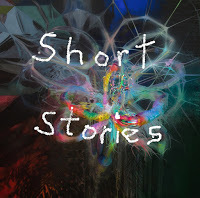
Beyond Lies the Wub
by Philip K. Dick
They had almost finished with the loading. Outside stood the Optus, his arms folded, his face sunk in gloom. Captain Franco walked leisurely down the gangplank, grinning.
"What's the matter?" he said. "You're getting paid for all this."
The Optus said nothing. He turned away, collecting his robes. The Captain put his boot on the hem of the robe.
"Just a minute. Don't go off. I'm not finished."
"Oh?" The Optus turned with dignity. "I am going back to the village." He looked toward the animals and birds being driven up the gangplank into the spaceship. "I must organize new hunts."
Franco lit a cigarette. "Why not? You people can go out into the veldt and track it all down again. But when we run out halfway between Mars and Earth –"
The Optus went off, wordless. Franco joined the first mate at the bottom of the gangplank.
"How's it coming?" he said. He looked at his watch. "We got a good bargain here."
The mate glanced at him sourly. "How do you explain that?"
"What's the matter with you? We need it more than they do."
"I'll see you later, Captain." The mate threaded his way up the plank, between the long-legged Martian go-birds, into the ship. Franco watched him disappear. He was just starting up after him, up the plank toward the port, when he saw it.
"My God!" He stood staring, his hands on his hips. Peterson was walking along the path, his face red, leading itby a string.
"I'm sorry, Captain," he said, tugging at the string. Franco walked toward him.
"What is it?"
The wub stood sagging, its great body settling slowly. It was sitting down, its eyes half shut. A few flies buzzed about its flank, and it switched its tail.
Itsat. There was silence.
"It's a wub," Peterson said. "I got it from a native for fifty cents. He said it was a very unusual animal. Very respected."
"This?" Franco poked the great sloping side of the wub. "It's a pig! A huge dirty pig!"
"Yes sir, it's a pig. The natives call it a wub."
"A huge pig. It must weigh four hundred pounds." Franco grabbed a tuft of the rough hair. The wub gasped. Its eyes opened, small and moist. Then its great mouth twitched.
A tear rolled down the wub's cheek and splashed on the floor.
"Maybe it's good to eat," Peterson said nervously.
"We'll soon find out," Franco said.
* * * * *
The wub survived the take-off, sound asleep in the hold of the ship. When they were out in space and everything was running smoothly, Captain Franco bade his men fetch the wub upstairs so that he might perceive what manner of beast it was.
The wub grunted and wheezed, squeezing up the passageway.
"Come on," Jones grated, pulling at the rope. The wub twisted, rubbing its skin off on the smooth chrome walls. It burst into the ante-room, tumbling down in a heap. The men leaped up.
"Good Lord," French said. "What is it?"
"Peterson says it's a wub," Jones said. "It belongs to him." He kicked at the wub. The wub stood up unsteadily, panting.
"What's the matter with it?" French came over. "Is it going to be sick?"
They watched. The wub rolled its eyes mournfully. It gazed around at the men.
"I think it's thirsty," Peterson said. He went to get some water. French shook his head.
"No wonder we had so much trouble taking off. I had to reset all my ballast calculations."
Peterson came back with the water. The wub began to lap gratefully, splashing the men.
Captain Franco appeared at the door.
"Let's have a look at it." He advanced, squinting critically. "You got this for fifty cents?"
"Yes, sir," Peterson said. "It eats almost anything. I fed it on grain and it liked that. And then potatoes, and mash, and scraps from the table, and milk. It seems to enjoy eating. After it eats it lies down and goes to sleep."
"I see," Captain Franco said. "Now, as to its taste. That's the real question. I doubt if there's much point in fattening it up any more. It seems fat enough to me already. Where's the cook? I want him here. I want to find out –"
The wub stopped lapping and looked up at the Captain.
"Really, Captain," the wub said. "I suggest we talk of other matters."
The room was silent.
"What was that?" Franco said. "Just now."
"The wub, sir," Peterson said. "It spoke."
They all looked at the wub.
"What did it say? What did it say?"
"It suggested we talk about other things."
Franco walked toward the wub. He went all around it, examining it from every side. Then he came back over and stood with the men.
"I wonder if there's a native inside it," he said thoughtfully. "Maybe we should open it up and have a look."
"Oh, goodness!" the wub cried. "Is that all you people can think of, killing and cutting?"
Franco clenched his fists. "Come out of there! Whoever you are, come out!"
Nothing stirred. The men stood together, their faces blank, staring at the wub. The wub swished its tail. It belched suddenly.
"I beg your pardon," the wub said.
"I don't think there's anyone in there," Jones said in a low voice. They all looked at each other.
The cook came in.
"You wanted me, Captain?" he said. "What's this thing?"
"This is a wub," Franco said. "It's to be eaten. Will you measure it and figure out -"
"I think we should have a talk," the wub said. "I'd like to discuss this with you, Captain, if I might. I can see that you and I do not agree on some basic issues."
The Captain took a long time to answer. The wub waited good-naturedly, licking the water from its jowls.
"Come into my office," the Captain said at last. He turned and walked out of the room. The wub rose and padded after him. The men watched it go out. They heard it climbing the stairs.
"I wonder what the outcome will be," the cook said. "Well, I'll be in the kitchen. Let me know as soon as you hear."
"Sure," Jones said. "Sure."
* * * * *
The wub eased itself down in the corner with a sigh. "You must forgive me," it said. "I'm afraid I'm addicted to various forms of relaxation. When one is as large as I –"
The Captain nodded impatiently. He sat down at his desk and folded his hands.
"All right," he said. "Let's get started. You're a wub? Is that correct?"
The wub shrugged. "I suppose so. That's what they call us, the natives, I mean. We have our own term."
"And you speak English? You've been in contact with Earthmen before?"
"No."
"Then how do you do it?"
"Speak English? Am I speaking English? I'm not conscious of speaking anything in particular. I examined your mind –"
"My mind?"
"I studied the contents, especially the semantic warehouse, as I refer to it –"
"I see," the Captain said. "Telepathy. Of course."
"We are a very old race," the wub said. "Very old and very ponderous. It is difficult for us to move around. You can appreciate that anything so slow and heavy would be at the mercy of more agile forms of life. There was no use in our relying on physical defences. How could we win? Too heavy to run, too soft to fight, too good-natured to hunt for game –"
"How do you live?"
"Plants. Vegetables. We can eat almost anything. We're very catholic. Tolerant, eclectic, catholic. We live and let live. That's how we've gotten along."
The wub eyed the Captain.
"And that's why I so violently objected to this business about having me boiled. I could see the image in your mind – most of me in the frozen food locker, some of me in the kettle, a bit for your pet cat -"
"So you read minds?" the Captain said. "How interesting. Anything else? I mean, what else can you do along those lines?"
"A few odds and ends," the wub said absently, staring around the room. "A nice apartment you have here, Captain. You keep it quite neat. I respect life-forms that are tidy. Some Martian birds are quite tidy. They throw things out of their nests and sweep them -"
"Indeed." The Captain nodded. "But to get back to the problem -"
"Quite so. You spoke of dining on me. The taste, I am told, is good. A little fatty, but tender. But how can any lasting contact be established between your people and mine if you resort to such barbaric attitudes? Eat me? Rather you should discuss questions with me, philosophy, the arts -"
The Captain stood up. "Philosophy. It might interest you to know that we will be hard put to find something to eat for the next month. An unfortunate spoilage -"
"I know." The wub nodded. "But wouldn't it be more in accord with your principles of democracy if we all drew straws, or something along that line? After all, democracy is to protect the minority from just such
infringements. Now, if each of us casts one vote -"
The Captain walked to the door.
"Nuts to you," he said. He opened the door. He opened his mouth.
He stood frozen, his mouth wide, his eyes staring, his fingers still on the knob.
The wub watched him. Presently it padded out of the room, edging past the Captain. It went down the hall, deep in meditation.
* * * * *
The room was quiet.
"So you see," the wub said, "we have a common myth. Your mind contains many familiar myth symbols. Ishtar, Odysseus -"
Peterson sat silently, staring at the floor. He shifted in his chair.
"Go on," he said. "Please go on."
"I find in your Odysseus a figure common to the mythology of most self-conscious races. As I interpret it, Odysseus wanders as an individual, aware of himself as such. This is the idea of separation, of separation from family and country. The process of individuation."
"But Odysseus returns to his home." Peterson looked out the port window, at the stars, endless stars, burning intently in the empty universe. "Finally he goes home."
"As must all creatures. The moment of separation is a temporary period, a brief journey of the soul. It begins, it ends. The wanderer returns to land and race. …"
The door opened. The wub stopped, turning its great head.
Captain Franco came into the room, the men behind him. They hesitated at the door.
"Are you all right?" French said.
"Do you mean me?" Peterson said, surprised. "Why me?"
Franco lowered his gun. "Come over here," he said to Peterson. "Get up and come here."
There was silence.
"Go ahead," the wub said. "It doesn't matter."
Peterson stood up. "What for?"
"It's an order."
Peterson walked to the door. French caught his arm.
"What's going on?" Peterson wrenched loose. "What's the matter with you?"
Captain Franco moved toward the wub. The wub looked up from where it lay in the corner, pressed against the wall.
"It is interesting," the wub said, "that you are obsessed with the idea of eating me. I wonder why."
"Get up," Franco said.
"If you wish." The wub rose, grunting. "Be patient. It is difficult for me." It stood, gasping, its tongue lolling foolishly.
"Shoot it now," French said.
"For God's sake!" Peterson exclaimed. Jones turned to him quickly, his eyes gray with fear.
"You didn't see him – like a statue, standing there, his mouth open. If we hadn't come down, he'd still be there."
"Who? The Captain?" Peterson stared around. "But he's all right now."
They looked at the wub, standing in the middle of the room, its great chest rising and falling.
"Come on," Franco said. "Out of the way."
The men pulled aside toward the door.
"You are quite afraid, aren't you?" the wub said. "Have I done anything to you? I am against the idea of hurting. All I have done is try to protect myself. Can you expect me to rush eagerly to my death? I am a sensible being like yourselves. I was curious to see your ship, learn about you. I suggested to the native –"
The gun jerked.
"See," Franco said. "I thought so."
The wub settled down, panting. It put its paw out, pulling its tail around it.
"It is very warm," the wub said. "I understand that we are close to the jets. Atomic power. You have done many wonderful things with it – technically. Apparently, your scientific hierarchy is not equipped to solve moral, ethical -"
Franco turned to the men, crowding behind him, wide-eyed, silent.
"I'll do it. You can watch."
French nodded. "Try to hit the brain. It's no good for eating. Don't hit the chest. If the rib cage shatters, we'll have to pick bones out."
"Listen," Peterson said, licking his lips. "Has it done anything? What harm has it done? I'm asking you. And anyhow, it's still mine. You have no right to shoot it. It doesn't belong to you."
Franco raised his gun.
"I'm going out," Jones said, his face white and sick. "I don't want to see it."
"Me, too," French said. The men straggled out, murmuring. Peterson lingered at the door.
"It was talking to me about myths," he said. "It wouldn't hurt anyone."
He went outside.
Franco walked toward the wub. The wub looked up slowly. It swallowed.
"A very foolish thing," it said. "I am sorry that you want to do it. There was a parable that your Saviour related -"
It stopped, staring at the gun.
"Can you look me in the eye and do it?" the wub said. "Can you do that?"
The Captain gazed down. "I can look you in the eye," he said. "Back on the farm we had hogs, dirty razor-back hogs. I can do it."
Staring down at the wub, into the gleaming, moist eyes, he pressed the trigger.
* * * * *
The taste was excellent.
They sat glumly around the table, some of them hardly eating at all. The only one who seemed to be enjoying himself was Captain Franco.
"More?" he said, looking around. "More? And some wine, perhaps."
"Not me," French said. "I think I'll go back to the chart room."
"Me, too." Jones stood up, pushing his chair back. "I'll see you later."
The Captain watched them go. Some of the others excused themselves.
"What do you suppose the matter is?" the Captain said. He turned to Peterson. Peterson sat staring down at his plate, at the potatoes, the green peas, and at the thick slab of tender, warm meat.
He opened his mouth. No sound came.
The Captain put his hand on Peterson's shoulder.
"It is only organic matter, now," he said. "The life essence is gone." He ate, spooning up the gravy with some bread. "I, myself, love to eat. It is one of the greatest things that a living creature can enjoy. Eating, resting, meditation, discussing things."
Peterson nodded. Two more men got up and went out. The Captain drank some water and sighed.
"Well," he said. "I must say that this was a very enjoyable meal. All the reports I had heard were quite true – the taste of wub. Very fine. But I was prevented from enjoying this pleasure in times past." He dabbed at his lips with his napkin and leaned back in his chair. Peterson stared dejectedly at the table.
The Captain watched him intently. He leaned over.
"Come, come," he said. "Cheer up! Let's discuss things."
He smiled.
"As I was saying before I was interrupted, the role of Odysseus in the myths -"
Peterson jerked up, staring.
"To go on," the Captain said. "Odysseus, as I understand him -"
March 1, 2021
Review - After the End by Bruce Golden
In these crazy, unprecedented, uncertain times it may be questionable whether one wants to be reading a book about the end of the world. Nevertheless, in After the End we have an intelligent novel of epic quality. Definitely one for your reading list.
When the comet Smith-Kim pulls loose from the Kuiper belt and heads straight for Earth, there isn’t much time to prepare for the imminent destruction of the world as we know it. Luckily a small group of scientists have set up the Sanctuary project – a Noah’s Arc of sorts – which has a plan to rebuild and repopulate the planet with plant, animal and human life.
The story does well in avoiding altogether the terror of the comet’s strike. Rather, it focusses on how the characters cope with their strange new barren landscape; in what the survivors do once the devastation has settled. We follow a selection of characters from both inside and outside the Sanctuary as they struggle to make sense of a world where one literary has to start again.
This novel is high on the human element with poignant illustrations of anthropology. It is about relationships, responsibilities and how moral values are tested. There are shades of Bradbury and Jeff VanderMeer and the scope of Dan Simmons, while all the detail is in just the right places; there’s enough science to keep things realistic but not too much and the story is well-paced and easy to read. Plus there’s a healthy pinch of imaginative sci-fi with a neurotic master computer and a few extra-terrestrial surprises as we head towards a thrilling and satisfying end.
A cut above your average apocalypse novel with scenes that will stay with you for a long time after reading.
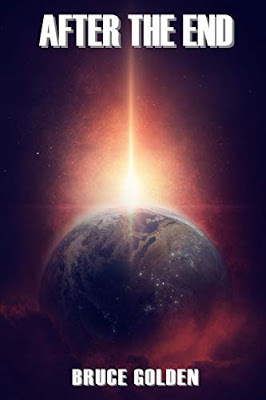
When a rogue comet collides with the Earth, setting the entire planet afire, there are few survivors. Among them are a submarine crew, an underground sanctuary of scientists, and scattered individuals. Those who do survive, by forethought or chance, rise from the ashes, continue to procreate, and their descendants find new ways to live, create new cultures, new societies, new theologies. In addition, an alien spore has arrived with the comet, and over the decades it grows and evolves into a new form of vegetation that develops a symbiotic relationship with a species of Earth. This relationship expands to become a formidable threat to mankind, even as the age-old clash between science and superstition, logic and faith, continues to divide humanity.
February 23, 2021
Mr. Tao
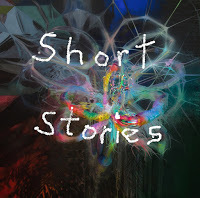
Mr. Tao
by Chris Morton
“Mr. Tao, Mr. Tao.”
The eyes blinked.
“Mr. Tao. Can you hear me?”
The first doctor clicked his fingers against the side of the man’s head. Haphazard; almost carelessly; then looked across at his colleague. “Looks like we’ve got another one.”
The second doctor muttered while the head, the head of Mr. Tao, began to moan – first low and barely a sound but soon that sound had grown to become nothing short of a desperate roar.
The first doctor’s face came forward, against the eyes: he had some sort of instrument. A light that he shone deep into what was left of the subject.
“He has cognition.”
“Don’t they all.”
This reply came from slightly further away. A third doctor, there were three of them – but then there was panic and much of it growing.
“Can’t we shut it up?”
“It bother you?” said one doctor to another.
Yes, there were three of them. Three doctors. The room was white. Blue. White. And the instrument was a strong, shining silver. Their clothes were white, so he assumed they were doctors. One of them looked away, at a right-angle to the other two who were each staring at him and he tried, tried his best to understand.
“Dump it, then?”
“That’s the fifteenth already.”
“Not even lunchtime.”
Laughter. Shuddering, reverberating laughter.
“I don’t understand it.” This came from the female. The woman. One woman, two men. Doctors … The female, the second doctor, seemed more interested than the other two. They were showing unkindness, discursiveness, like this was some sort of routine and they couldn’t have cared less for him … for Mr. Tao …
That’s my name, he thought.
“The problem is not physical, per se. The head itself is fully recovered.”
“Functional,” put in the third, still staring away at a right-angle.
“It’s the mind,” continued the first doctor, regarding the woman with slight … he was being patronising, superior, informing her as if she were a junior. “The mind cannot cope.”
“With the body,” she replied.
Mr. Tao tried to look down. At what body?
And then he saw it, the reflection in the wall opposite that was a huge, giant glass mirror and the three doctors with him, but it was too much to handle.
The woman, her back arched – she was bending at him. She had black stockings under the white coat and her hair was brown; long, brown and soft. Mr. Tao wanted to touch it, to reach out and he could feel where his arm and hand should have been.
“Wait a minute, we’re getting something.”
The two other doctors were older. One grey-haired, the other black. The grey haired doctor was the one staring off at a right-angle.
“Movement in the left temporal.”
Mr. Tao recognised his face. So familiar. Bathroom mirror, he thought. He remembered shaving, and of times when he’d just stared – why?But he hadlooked. So often he had looked at his reflection.
“It’s confused.”
The head, the head was his, but attached to something metallic; artificial and spindly.
“Mr. Tao, can you hear us? Do you understand where you are?”
Spindly, from the neck down to a shining, elongated scaffolding of circuits. There were legs, arms, and long, metallic fingers.
“Mr. Tao, do you understand.”
He blinked.
“Not getting anything.”
Mr. Tao began to scream, then realised in the strangest way that he’d already started screaming much sooner – his mouth was open, like a fish.
“Mr. Tao. You are alive.”
But the woman, she seemed worried. She turned to the black doctor. “Is there anything we can do?”
The black doctor said nothing but his eyes, they rolled dismissively.
“Nothing at all?” the woman repeated.
The grey-haired man’s lips were moving ever so slowly. He was talking to the wall – there was something there, out of sight. (Mr. Tao reasoned that it may be some kind of computerised interface).
“Mr. Tao.”
It was the black doctor addressing him – it was he, the first doctor, who had been addressing him all along.
“Mr. Tao, this is the year 2333. You were put into cryogenics …”
But Mr. Tao, the head, was no longer taking notice for it was the woman he was focussing on. Only she could save him now. Tears, bright blue – they were flooding from the ducts in her eyes. Her lips opened and a surge of memories flew at him in a dense, rushed groan and he tried again with his right hand, to reach out to her, begging for help. For understanding.
He knew he’d made a connection.
Help me, he screamed. Help me … My God …
“Another dud,” he heard.
The black doctor looked to the woman. “Fifteen it is, then.”
Hand at her mouth, the tears continued to flow.
“Kill it,” said the grey-haired doctor, turning finally to face the head.
“Another one for the pigs,” agreed the black doctor, patting the woman on the back.
Laughter. Horrible, reverberating laughter. They were mocking him. Giving up on him.
I’m right here. Help me, my God.
“Says here, he paid a fair fortune for this.”
“Didn’t they all?”
Their words became distant: “A … CEO … Symantec … crash … too much blood … ironic … automotive …” A crash, yes! he remembered. A CEO. He had risen to the top, and controlled … he’d been in charge of … self driving … and then … there’d been an accident …
But a song had entered his head. Keep it … window … flying there and … feeling …
With a jerk he was being carried across the room.
“Another head for the disposal.”
More laughter, and ever so slightly less reverberating.
The song continued: Each day … while you can … flying there and … float …
A thump.
Staying conscious for barely long enough to project three hail-Marys, Mr. Tao took in the other heads; he took in their punctured, rolling eyes – though rather than feeling the horror you might imagine, Mr. Tao, once inside and when the lid had closed, decided that in a way it was like returning to the womb. Like home, he decided.
The moaning roar ceased and the head began to convulse in what could only be interpreted as laughter.
Chris Morton is the creator of this blog.He has released six sci-fi books.You can find his amazon page here.
February 17, 2021
It Seems Fairly Likely by Patrick Gabriel Doyle
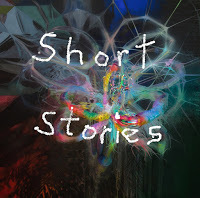
It Seems Fairly Likely
by Patrick Gabriel Doyle
It seems fairly likely that once upon a time, between the orbits of Jupiter and Mars, another planet may have existed but, somehow, destructed. There is some evidence of this scattered around the vastness: the asteroid belt for example, or some of Jupiter’s moons, perhaps, and the fairly recent discovery of Jupiter’s rings. The closer we look, the more we see – the more we see the deeper the mysteries unfold.
It is, perhaps less likely but, nonetheless, somewhat tantalising that this once-planet supported life and, more tantalising still, that a race of intelligent beings possessing a certain degree of advancement and development populated the planet as it neared its end.
Ever more lip-smackingly tantalising is the thought of that once-planet in orbit around our Sun, while, at the same time, on this world we call Earth; life was also at a certain stage of development.
However, even more deliciously tantalising is the prospect of two possibilities arising from this premise we have built up.
One:
That life on Earth was seeded from the once-planet, perhaps post-destruction, in some gloriously survivalistic, chance consequence. Or, indeed, that life on Earth was seeded on purpose as a means of carrying on the genes, so to speak.
Two:
That both planets held life simultaneously …
*
Cara Delaggwei sat happily astride her saurian mount. It was a beautiful Urth day; her fifth out from Atlantis.
She had nothing much to do – check the herds, gather some food and rig up a shelter. She was going to be spending the night away from Main Compound.
As the day wore on, she drew ever closer to a smouldering volcano, glimpsed through thick, jungle foliage and sending pretty, ribbon trails of smoke up into the blue.
Of course Cara knew those pretty trails were actually noxious fumes and that at any moment the volcano could erupt, quaking the ground and throwing suffocating ash into the air. But not today!
Instruments showed no trace of major seismic activity in that area. Of course, there were always rumblings: Threats. Impulsivity. It was a young world after-all. Younger than her.
She enjoyed dabbling with time when she was ‘down there’ as they called it.
Without warning two snap-lizards came crashing through the foliage towards her. They were after her Saur but would make a tasty meal of Cara nonetheless, even if they didn’t know what she was!
She pulled a stun gun and pulsed a vibration to one of the lizards.
It dropped.
She took instant aim at the second lizard.
Suddenly her Saur lurched and toppled, throwing her to the ground. A third snap-lizard coming in from a different direction – a hunting party with a plan – a bit of evolution going on here – she thought crazily.
She managed to roll away from the action.
Her Saur was already fighting a losing battle and Cara tussled with compassion against the directive that they must change nothing – but we’re changing it just by being here!!
If she stunned the snap-lizards she would be left with a badly injured Saur to deal with – she could maybe heal it – but then the snap-lizards would have no dinner – but then the Saur wouldn’t have been here if I hadn’t –
WHOOSH – SNAP – breath on her right ear. With reflex action she sprang away from yet another snap-lizard as it entered the scene.
Luckily Cara was smaller than the usual lizard prey and the mistimed SNAP, sent it careering on to where the main action was happening. But she had been clocked – she had better get out of there – Thank you Saur and goodbye!
Pausing merely a microsecond, she made a sign in the air and sent it to the already fading Saur. She knew – one small moment of compassion goes a long, long way – then she was out of there.
Cara kept running until she put enough distance between herself and the snap-lizards to feel safe, at least, for the moment. At some point she would have to make her way back to retrieve her equipment, unless one of the snap-lizards had chewed it up – wouldn’t that be a find for some palaeontologist in the future!
She dug up some roots to munch on, communed with Main Compound and filled them in on the day’s events, then settled herself in the undergrowth until evening.
When she woke, she realised she’d been asleep – some kind of huge red/green, winged insect was buzzing around the bushes.
A quick glance at its proboscis told her it wasn’t going to bite her – more interested in the evening flowers – she smiled, but moved away stealthily nonetheless.
By the time she reached the spot where the snap-lizards had attacked it was deep twilight. Foliage had been thrashed around so much that a small clearing had been made. There was a trail of snapped branches where the remains of Saur had been dragged away by the snap-lizards or something else.
The packs of equipment were easily discernible against the flattened grass – all was well on that score anyway.
Moving through the dense undergrowth at night would be foolish so she set up a vibrobarrier and phase-tent, which provided some degree of invisibility and protection lest the rains and biting insects come.
It was now pitch black night. She drank proto-water, thinking about how she should proceed tomorrow. The stars twinkled through a break in the foliage.
By chance, Atlantis was visible in that small portion of sky, brighter and bigger than the surrounding stars. She wished to commune and set her mind in process – SUDDENLY – INTENSELY AWARE OF ACUTE SILENCE – THEN – ATLANTIS – INTENSELY BRIGHT - EXPANDING – ACROSS THE SKY – ACROSS HER MIND – SEARING LIGHT – ENGULFING CRASH – THEN…
darkness…
silence…
over Urth…
in her mind…
She looked up.
Where Atlantis had been – an empty space.
Where there had been connection in her mind – silence.
Atlantis? Gone? - She whispered to the night. And to herself, almost like an expectation, she whispered – It seemed fairly likely.
February 15, 2021
Art - Vincent Chong
Art - Vincent Chong
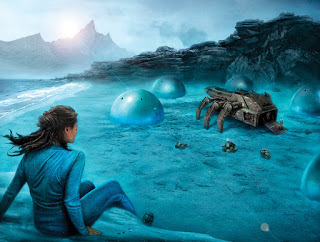
from Broken Angels by Richard K. Morgan
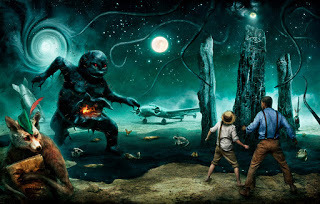
from Cosmic Interruptions by Joe R. Lansdale
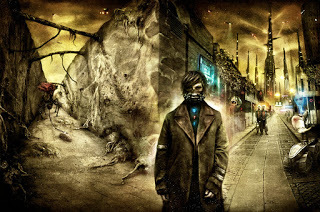
from Embassytown by China Mieville
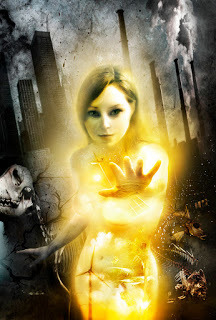
from Shine by Jetse de Vries
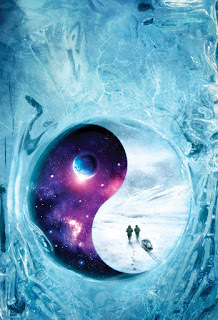
from The Left Hand of Darkness by Ursula K. Le Guin
February 9, 2021
The Stranger
The Stranger
by Chris Morton
I remember the first time I saw him he was passing me in the street and he shouted to me, “Hello, handsome man.”
I liked the way that sounded. It was a compliment and I replied with a smile.
The next time our paths crossed he shouted the same thing.
“Hello, handsome man.”
“Hi,” I replied, walking on.
It took me a while to realise he was a neighbour. Two houses down from mine. One night I saw him go in there, a residence that unlike my own town house, was shared by lodgers. Through ground floor windows I saw abstract art and a faraway television showing the news. Near to the house was a bench I’d begun to settle down on from time to time when the evening was warm. The street was quiet on those summer nights. I’d enjoy a beer or two there; watch the passing cars and contemplate the meaning of life.
One day, coming home from work I noticed him on the same bench.
“Hello, handsome man,” he’d said.
“Yeah, that’s me. The handsome man.”
“Where are you from?”
“You know, around …”
“A beautiful evening.”
“That it is.”
I carried on walking, got to my door, shoved the key in and turned the lock.
/
Now and then I’d see him coming out of our local convenience store. Dirty shorts and T-shirt, a satchel round his shoulders and plastic bag swinging by his side. There was something about him. A sadness. Pity. I’d begun to avoid our little exchanges when I could.
Sometimes, however, I was lonely myself. On one such night I spotted him while out for a walk. I’d wander the streets to get out of the house, get away from the computer, the TV, get out into the real world for a half hour or so.
He was there, coming straight for me.
“Handsome man,” he bellowed.
“How’s it going,” I replied.
We talked about the weather, the hot summer we were having. Then somehow or other we got onto the subject of UFOs.
“Up there,” he warned me. “They are watching.”
“Oh yeah?”
“They’ve taken me.”
“Taken you?”
“Before,” he answered, his friendly expression sliding into that of morbid sorrowfulness.
I backed away.
“You, be careful,” he warned.
“Sure,” I answered. Then: “So, you’ve seen them?”
“I did,” he replied, looking down at his satchel. “But I have ways. Ways to make them stop.”
By coincidence I wrote sci-fi stories and was working on a collection – I should have been more interested (What had they done to him, what did they look like? Did they have names, these aliens?)
But this was real life, not a game.
Frowning, I asked if he took medicine. A cousin of mine had heard voices. She’d been put on medication. I considered the possibility of helping this man. Reporting him … but to who?
He began to wave a finger at me. “They are watching!,” he shouted. “Watching you. Watching us!”
“Yeah, sure.”
“You just be careful, handsome man.”
I looked at my watch; reassured him that I’d be okay.
/
An argument broke out on my street. Unable to resist the temptation to sneak a look at what was going on, I carefully slid open a window.
It was him, shouting at the drivers of two cars that were having trouble passing each other in the narrow road. Parked cars either side, it was a phenomenon not uncommon in the street in which I lived.
Ordering each driver to back up, to move forward, to drive more carefully … his shouts were met with embarrassed politeness. This was not his business, but who were they to argue? Best not get involved.
Inside the convenience store one evening I ran into my boss. We got to talking, an awkward conversation about work.
“Hello, handsome man.”
“My neighbour,” I stated, by way of introduction.
“Ahh, hello, there,” said my boss. “Neighbours, then. And what is it you do?”
“He sees UFOs,” I muttered by way of explanation to this dishevelled figure. To excuse whatever words he might come out with.
“I live two doors down,” he exclaimed happily, while my boss shrank away in horror.
/
Again I’d pass him. Some days I’d stop to talk, other days I’d just smile. I began to wonder how hard it would be to make friends with this man. I was lonely myself, so why not strike up a partnership of sorts. I’d have to set down rules though. No hassling me every day. It would have to be on my terms. We could wander the streets after dark, take in a beer or two. Or we could become best friends, why not? I’d be doing him a favour. I could change his life.
“Hello handsome man,” he shouted, his satchel clanging by his side.
“Hello,” I’d reply, walking on.
Soon, however, I started to notice a change. There were a set of drunks who’d gather at the park, who’d sit outside the convenience store with their cheap wine and angry banter. I noticed he was sitting with them more often than not. He’d found friends, I was off the hook.
He’d pass me in the street with a plastic bag full of beer cans. Instant noodles. There was a lady who worked at our store who I noticed had begun to chat to him whenever he was in there. Before he’d been served with coldness, a glacial apathy … but he’d become more respectable, acceptable. A local, friendly drunk.
He’d pass me looking worse than ever and I was often the first of us to acknowledge the other.
“Hello,” I’d say.
“Handsome man,” he’d reply with a glazed expression.
And we’d both walk on.
But one time I saw him in the supermarket at a table drinking a coffee and I joined him for a moment, saying I had somewhere to go, someone else to meet. I couldn’t stop, just wanted to say hi. There was a queue and I had a minute to spare.
“My son,” he said. “He lives in America.”
“Oh, so you have a son,” I replied. “That’s nice.”
“He’s a good boy. Very handsome.”
And your wife? I almost asked but didn’t.
“Studying there.”
“Oh, yes?”
“He’s very smart.”
“Of course,” I stumbled. “I mean, he must be.”
The last time I saw him he was with two older men playing chess in the park. He wasn’t playing, just watching. It was nice, I thought, that he was allowed to sit with them. I wondered what his life had been like before. If he really did have a son. What he’d been like as a boy. Sitting with other kids in the classroom, the same as everyone else. From what I knew of my cousin, common forms of schizophrenia and such types of madness could hit in at puberty, other kinds more often than not hit you in later life. But as a child, he’d had a mother and father and friends at school. He’d had hopes and dreams. One day, when he was older …
It must have been over two months when it finally dawned on me that I hadn’t seen him in a while. Where had he gone? Whatever happened to that crazy fellow who always used to call me handsome man? I had a suspicion that he might have died. Either that or moved away. I wondered if he’d been committed. Cured.
“That guy,” I said to my neighbour. A retiree who often stood outside smoking by his front door. “The one who was …” how to put it? “A bit crazy. Haven’t seen him in a while.”
My neighbour peered at me through a cloud of smoke. “Two doors down that way?” he coughed.
“That’s the one.”
“Dead, so I heard.”
“He died?”
“Bad heart. He was young and all.”
Older than me but younger than my neighbour. Must have been in either his forties or fifties, though I decided to not bother with asking for any confirmation over his age.
“His heart?” I said instead.
“Drank, you see.”
“Sure, I guess he did.”
“Not mad. Just drunk.”
“But he was a bit, you know, I think he had mental illness. Maybe that’s what –”
“– No, not mental illness. He was a drunk.” My neighbour spat on the floor. Stubbed out his cigarette.
“At the end he was, sure,” I insisted.
“No, no, always. His satchel. Full of it. Drink like that, it’s bound to get you in the end.”
About a week later I walked up to the woman in the store, the one who’d been nice enough to chat with him from time to time in the last few months of his life. I wanted to tell her, just in case she didn’t know. He’s dead, I wanted to say. The news, I felt a strange need to share it with somebody. I wanted to find out more, about who he’d been. Had there been a funeral? Who, if anyone, had gone?
“Would you like a bag with that?” she asked.
I hesitated, open-mouthed. This woman, I didn’t want to shock her with talk of dead neighbours.
“Sure,” I said instead, handing her the money. Giving her the best smile I could manage, I picked up my stuff, then walked outside.
You be careful, handsome man. They are watching you, watching us!
Grey clouds mixed with emerging stars. The wind blew softly.

